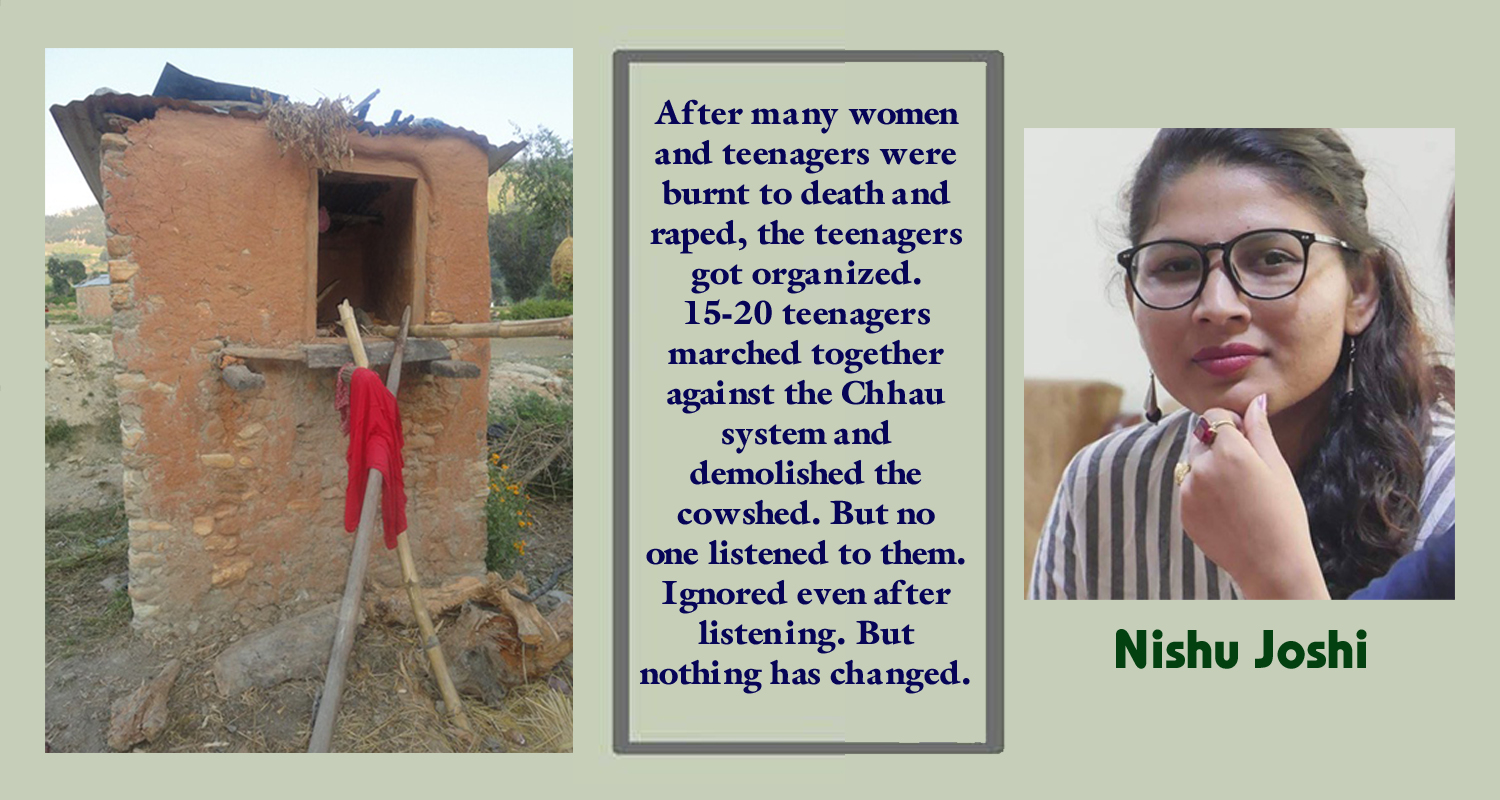
It is a natural law for women to have menstruation. There is physical pain during menstruation on the one hand, on the other hand there is pain due to social, religious and cultural practices. Even in the 21st century, women are still being discriminated against according to geography. But the pain of all women is the same. There is a problem in health due to lack of hygiene during menstruation and shame in seeing the problem. No matter how serious the problem is, there is still a tendency not to go for treatment and not to talk openly about it.
In Nepal, the practice of chhaupadi is still prevalent in Karnali and Far-Western states. Dozens of people have lost their lives in Chhaupadi Goth in Achham district. Although the cowsheds were demolished on the initiative of governmental and non-governmental organizations, the practice could not be stopped. Women and adolescents are losing their lives every year due to fire, rape and snake bites. Even after such a dilapidated incident, the tradition does not seem to have been abandoned. There is still a fear that the gods will curse.
77 percent of the people live in slums
According to a study conducted in Dailekh district, 77 percent women have practiced chhaupadi. Thirty-two percent of women did not go to work due to menstruation in November and 27 percent did not go to school due to menstruation last year. (Source : University of Bath, BBC, December 6, 2019)

(Source : University of Bath, BBC, December 6, 2019)
In Achham, 14 people died in 10 years in a cowshed
Parvati Budha Rawat, 21, of Sanphebgar Municipality-3, Siddheshwar, Achham, died of suffocation due to smoke in her cowshed. Rawat was killed during a 16-day campaign against gender-based violence. Police had arrested his elder brother Chhatra Rawat on December 3, 2008 in connection with the death of Rawat.
Parvati Budha, an 18-year-old girl of Jaya village in Turmakhand Municipality-4 died after being bitten by a snake while sleeping in a cowshed. While sleeping in the barn with her friend Radhika Budha, Radhika informed that a snake on the roof had fallen on ParvatiÚs body and bit her finger. He died due to lack of treatment when the news came out late as other members of the family were at home in the village.
Gauri Budha, 22, of Turmakhad died of suffocation in a cowshed in May 2074 BS.
15-year-old Roshni Thiruwa of Gajra-7 died of suffocation due to smoke. While RoshniÚs mother was sitting in the same barn during menstruation, she came out at midnight after suffocating with smoke. Under the Chhaupadi Prevention Project, Gajra was declared Chhaupadi Goth-free on September 26, 2072 BS by the Women and ChildrenÚs Office with the help of Save the Children.
In 2073, Dambara Upadhyaya of Timilsen-7 also lost her life in Chhaupadi Goth a few weeks before the Rosni incident.
In 2068 BS, 15-year-old Sharmila Bhull of Ridikot-4 died of suffocation due to smoke in her cowshed.
Laxmi Budha of Dhakari-4 was burnt to death in a cowshed on January 3, 2008.
These are just incidents that have come out. These are incidents that direct women have to face. It is unknown at this time what he will do after leaving the post. According to the statistics of various agencies, 14 women and adolescents have died in the cowshed in Achham in a period of a decade till 2076 BS. According to the District Police Office, Achham, most of the people have lost their lives due to the fear of people and wild animals.
According to Birmala Devi Budthapa, deputy chief of Sanphebgar municipality of Achham, the practice of chhaupadi is still prevalent in about 45 percent of the households in the municipality. As per the decision of the government to demolish the cowsheds on December 26 after the women of Karnali and Far-Western region have suffered hardships and discrimination in the name of cowshed practices, there are statistics that 8,617 cowsheds have been demolished till December 7, 2076 BS.
According to the Police Headquarters, 6,382 cowsheds were demolished in Far-Western Province and 2,235 in Karnali Province till March 30. According to police spokesperson Shailesh Thapa Chhetri, 4,897 cowsheds were demolished in Achham district and 1,924 in Surkhet. Similarly, 510 cowsheds were demolished in Bajura, 342 in Doti, 273 in Kailali, 259 in Dailekh, 197 in Kanchanpur, 140 in Bajhang, 30 in Jajarkot, 20 in Kalikot, 23 in Dadeldhura and two in Salyan.
Similarly, the government had allocated Rs. 10 million for 499 households in Karnali and 466 households in the far-western states. It was also decided to stop the services provided by the government to the people who keep cowsheds.

Legal system
Article 168 of the Civil Crimes -Code_ Act, 2074 BS has made provision for Úno insult or inhuman treatmentÚ. The law clarifies that æno one shall be subjected to torture or to cruel, inhuman or degrading treatment or punishment.æ The act also defines what is called Úabusive or inhumaneÚ behavior. The act categorizes such acts as ‘accusation of boxing, eviction on the charge of boxing, social exclusion or any other act of cruel, inhuman or degrading treatment’.
Anyone who commits such ‘abusive or inhumane’ behavior could face up to five years in prison and a fine of up to 50,000 rupees. Sub-section (3) of the same section of the Act provides that a woman should not be kept in a hut during menstruation or maternity or any other form of discrimination, untouchability or inhumane treatment. There is a legal provision of imprisonment for up to three months or a fine of up to Rs 3,000 or both. But in the case of a civil servant, there is a provision of imprisonment for an additional three months for such offense.
Authorities say a six-month deadline has been set for such offenses. According to him, if the victim has not filed a complaint in such case, the police can proceed with the case by preparing its own report like in other criminal cases. The Grip World (GRYP World) YouTube channel, which is targeted at women, is launching a ‘menstrual story series’ on the subject, declaring it to be the first sensitive issue. You can also read and watch the content here in collaboration with the Grip World (GRYP World) YouTube channel. The story of a teenager from Achham in the first series
Concerns that menstruation may not be delayed
Generally, most adolescents have their first menstrual period between the ages of 10 and 14. The teenager (name withheld) had a late menstrual period at the age of 17. Until 17 years ago, when there was no menstruation, many feared that it would not happen now. But he had high hopes that it would happen. Because her mother also had her first menstrual period at the age of 17. He thought it was a hereditary trait. Because of this belief, she had her first menstrual period at the age of 17. Remembering the date of her first menstrual period, she says, ‘She had her first menstrual period on the 20th of Chaitra. According to the custom, she had to go for nine days.’
The first menstrual experience
During her first menstrual period, she had a dilemma. ‘Blood was low, so I was confused,’ she said. She first told her sister that she had menstruation. She hid her shame in Jarim’s mouth. The sister told her mother. When he came to visit his mother, he thought, ‘Didn’t you make a mistake by looking at your mother’s face ?’ How can this not be so ? The custom here was the same – not even to see the face of the uncle’s brother.
After some time, he was happy to see his uncle. She says that because her father was a teacher, she did not have to face many problems like others. During menstruation, I had to stay in Nare (Chhaugoth). Vahini sat with him. When he sat on the slogan for the first time, he did not like it. Where the home environment, where the barn. The place where he lived was a barn with firewood. I slept on the same floor for 9 days. Talking about the hard work to be done during the first menstrual period, she says, ‘I should have got up early in the morning.’
My mother-in-law used to bring food and keep it outside the cowshed. That frozen food had to be eaten without showing anyone’s face. I had to go to bathe in the river far from home as I could not touch the tap.’ Giving information about the support of the family, she added, ‘My uncle used to tell me not to go to the river far from home to take a bath, I will install pipes in the house.’ But there was a banana plant in the yard. If the plant dries up, Vuda Wajewajya, who has a traditional belief, will not say anything. Aunty had taught her how to use a tala made by tearing a sari cloth during menstruation.
Regarding sanitation, she says, ‘I used to throw away the tala because it was disgusting.’ He would ask for clothes with his aunt again. So when Aunty suggested to wash and use it, she said don’t give it even with so many clothes.’ In her village, it is customary to eat separately from home during menstruation. While eating like this, some acquaintances were found. She said that sometimes they do not eat because of their shame. It is also forbidden to give that wasted food to cattle for fear of sin. She said she had to dig a hole and bury it.

Death by burning in a cowshed
One of his aunts died in the fire. He died in a fire in the winter of December. She slept in a cramped barn and could not get out of the fire. Similarly, another woman from the same village died of suffocation due to smoke. There is another incident before his eyes. One woman had her first menstrual period after marriage.
He was put to sleep in a cowshed. But her body was found in a state of rape. An incident happened in his life while watching this incident closely. When she found out that her headband was burning while she was sleeping at night, she put it out. She then told her mother about the incident and decided to stay. Educated by the family, she built a tin room and still lives there. This incident shows the example that traditional beliefs cannot be abandoned suddenly but can be made systematic.
The first menstruating girl jumped from the cliff
We talk about consciousness, we talk about education. But we do not have the ability to understand psychology. This incident is based on this. In her village, a young woman had her first menstrual period. The physical pain of having menstruation for the first time, on the one hand, fear, terror, on the other hand, many policies of the society have to be changed. On top of that, I had to go to someone else’s cowshed to have menstruation. The family had a dispute with the neighbor. Because of the dispute, the neighbors refused to let her live in their barn. This may be one of the reasons. Or there may be some other reasons not seen. She committed suicide by jumping from a cliff.
The trend is changing
Even when a life-threatening incident occurs, the society is afraid of gods and goddesses. That’s why the kind of change that should have happened didn’t happen. But despite the slow pace, the mood has begun to change. Telling about her mother’s condition, she says, ‘Even now, you can’t go to the temple, you can’t touch cows, you can’t eat milk and yoghurt, you can’t feed buffalo.’ Ray had to put up a tent during his mother’s time. Rice was not allowed to be touched. Only bread was available. We have got to eat rice.’
Thinking before menstruation
By the time he reached the age of 14, he thought that only married women would have menstruation. But after her unmarried aunt started menstruating, curiosity arose in her mind. She asked her aunt, who was close to her, about it.
Aunty, menstruation occurs only after marriage ?
No, it happens in 12-13 years.
Why and how ? Doesn’t hurt ?
It hurts. Feeling tired, body aches, stomach aches…
Why should you stay outside the cowshed when you are menstruating ?
When you have menstruation, you feel like touching others. It feels like a sin. If children are touched, they dry up.
Do you touch children ?
There is a difference between a woman who has just given birth to a teenager and a married woman. Their menstruation is not the same…
Has anyone ever felt like a god ?
I think so.
Terai people do not hear about it ?
They also bark.
Silent revolution begins
After menstruating on her own, she realized that this was a natural thing. It doesn’t look like a goddess. So she silently raised her voice against it. Once she was sitting in her aunt’s room in Surkhet. At the same time, she started menstruating. After she started menstruating, her aunt put her in someone else’s room. He did not feel comfortable sitting in someone else’s room. During menstruation, she touched her brother and looked at him. Nothing happened to anyone. She told her aunt. Auntie got angry. But when she was menstruating, she even cooked the food herself.
Adolescents united against Chhaupratha
After many women and teenagers were burnt to death and raped, the teenagers got organized. 15-20 teenagers marched together against the Chhau system and demolished the cowshed. But no one listened to them. Ignored even after listening. But nothing has changed.
There was knowledge but it was not practical
The health subject was taught by the teacher in the school. He used to teach that you should eat milk curd during menstruation. But he did not put it into practice in his home.
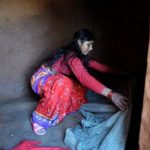
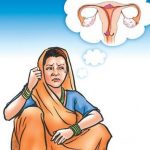



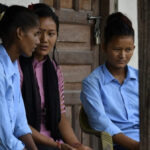
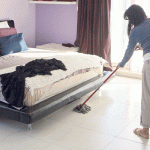
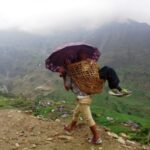

Design : Aarush Creation

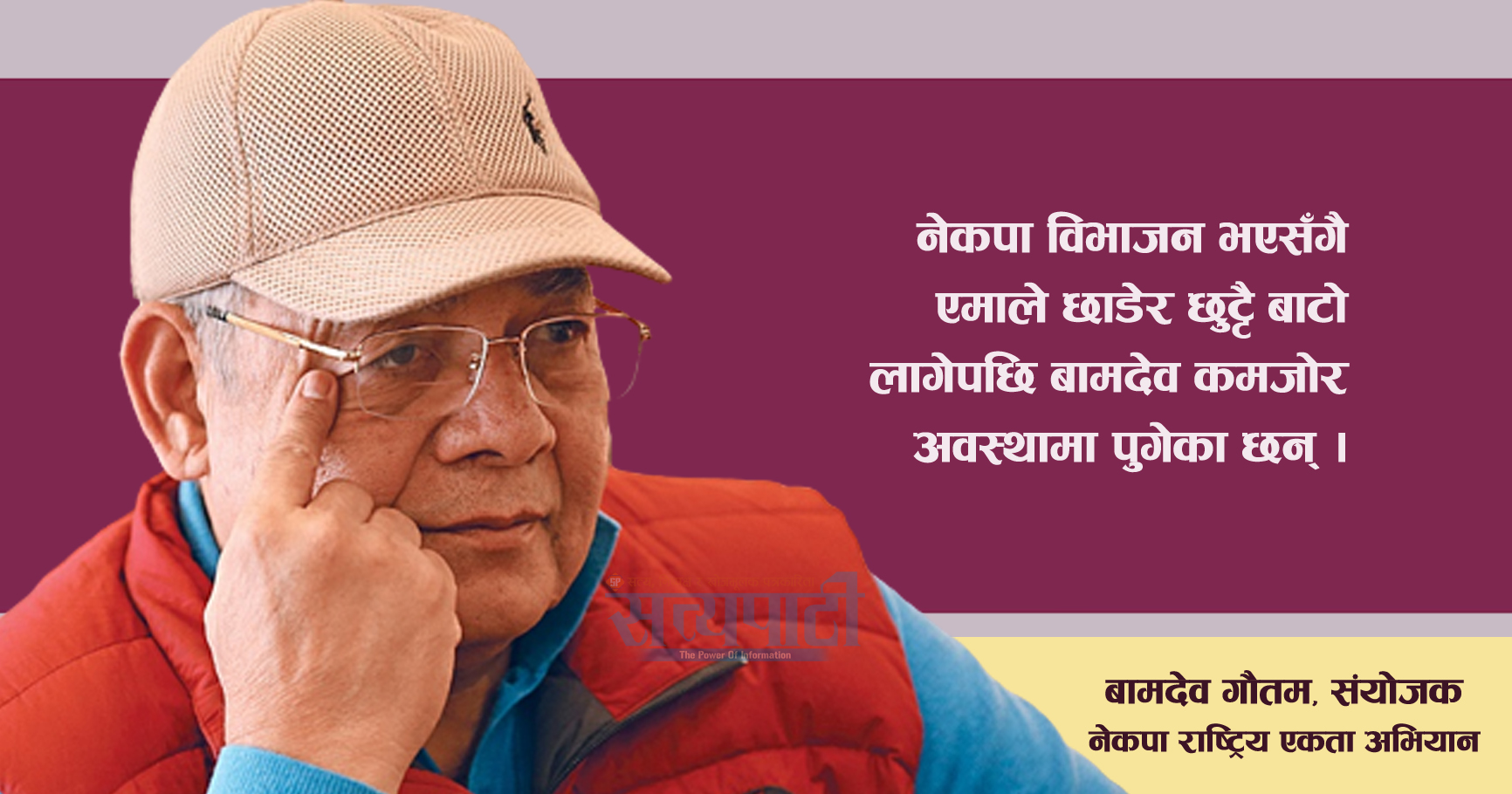

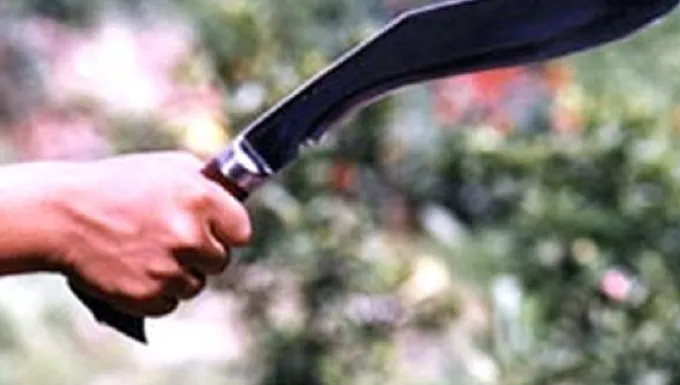





Nishu Joshi ।